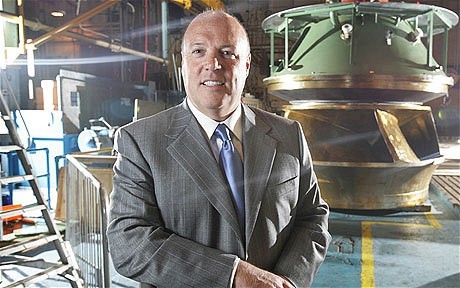
Scottish entrepreneur Jim McColl said yesterday he was planning to use some of his remaining £280million war chest on further acquisitions in the oil service sector.
He added the new deals could include a Norwegian firm, allowing him to tackle the North Sea from both sides.
Mr McColl said his Clyde Blowers Capital (CBC) business, which invests in engineering companies serving the oil and gas, power and mining sectors, was also looking at several acquisitions through recently-acquired engineering firm Parsons Peebles Generation (PPG).
January’s multimillion-pound purchase of Rosyth-based PPG marked Mr McColl’s return to the UK North Sea.
Last month, CBC acquired Houston-based oil and gas service provider Energy Services International (ESI) for £13million.
PPG and ESI are both looking to grow business in the North Sea market this year, helped by new operations facilities in Aberdeen.
Mr McColl, a former company doctor and ranked among Scotland’s top five richest people in 2012, said: “They are what we call platform companies and we intend to build significantly on them.
“I’m keen on growing . . . quite fast and we’re already looking at one acquisition through Parsons Peebles and another in Norway.”
“Over the next five to 10 years we’re going to see a lot of activity in the oil sector.”
He added that high levels of downtime had hit North Sea production in recent years but there were now opportunities in the area as a result of oil firms investing in infrastructure.
ESI, whose main presence is in the Gulf of Mexico manufacturing and repairing jacking systems and drilling-related equipment, is seen as ripe for growth in other markets.
Mr McColl, CBC’s chairman and chief executive, said: “The company had a turnover of £13million last year and we are confident we will increase that to £65million over the next three to five years, with a great opportunity to expand initially into the North Sea and the Middle East.”
He hopes to repeat the success story he had with Aberdeen-based Hunting Oilfield Services, which he turned around as managing director during a downturn in the 1990s.
“It was my first real exposure to the oil industry,” he said, adding: “I think they (the board) were apprehensive this was a new industry for me but we built a good team and strategy.”
The successor he nominated at Hunting, Dennis Proctor, is now chief executive of the still-growing group.